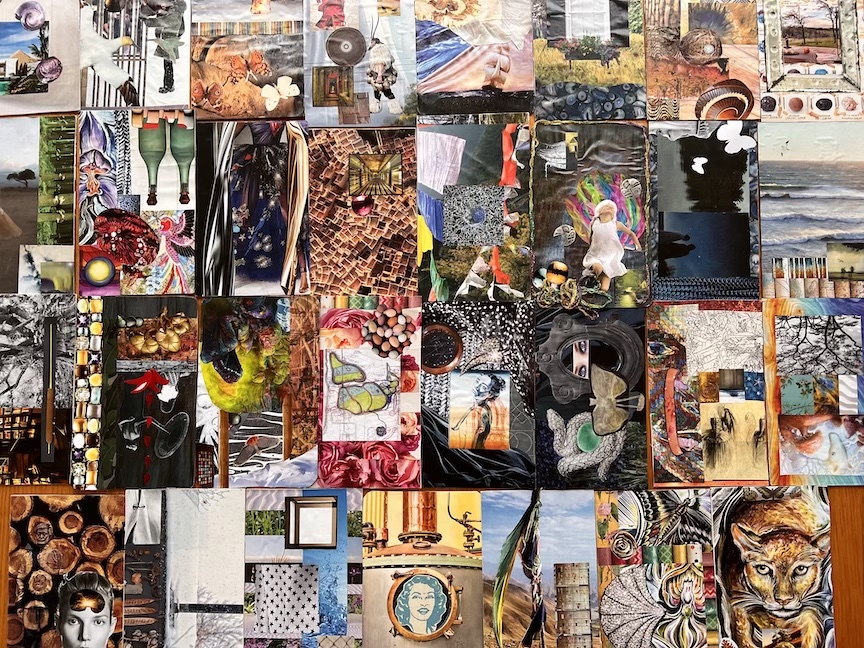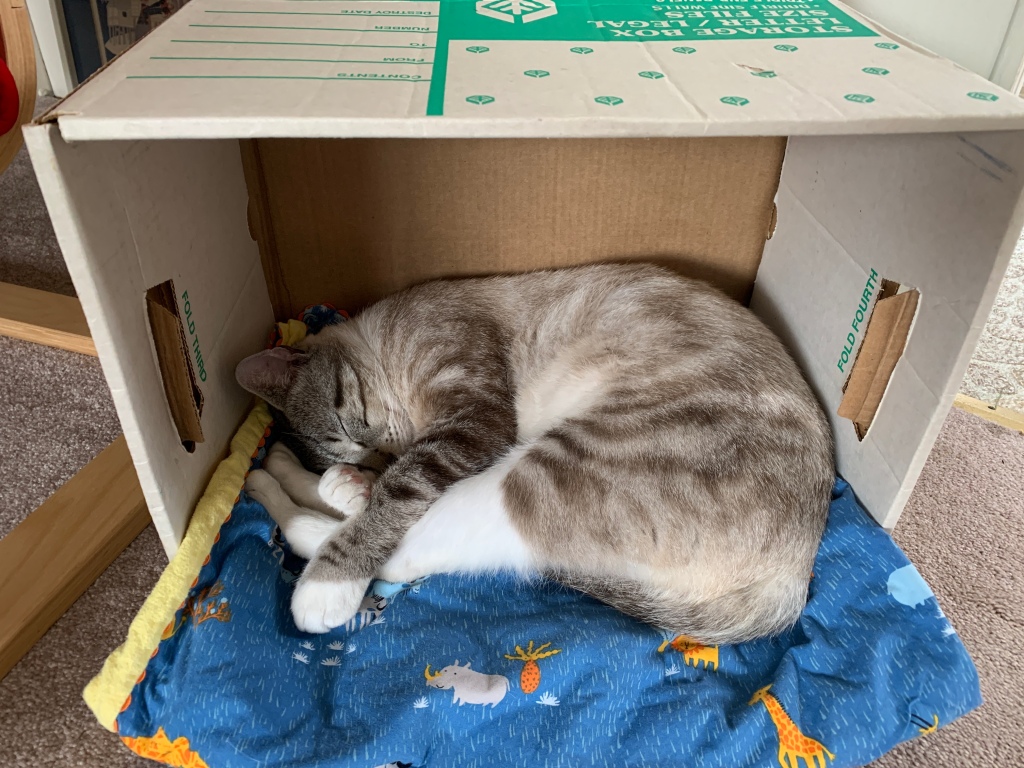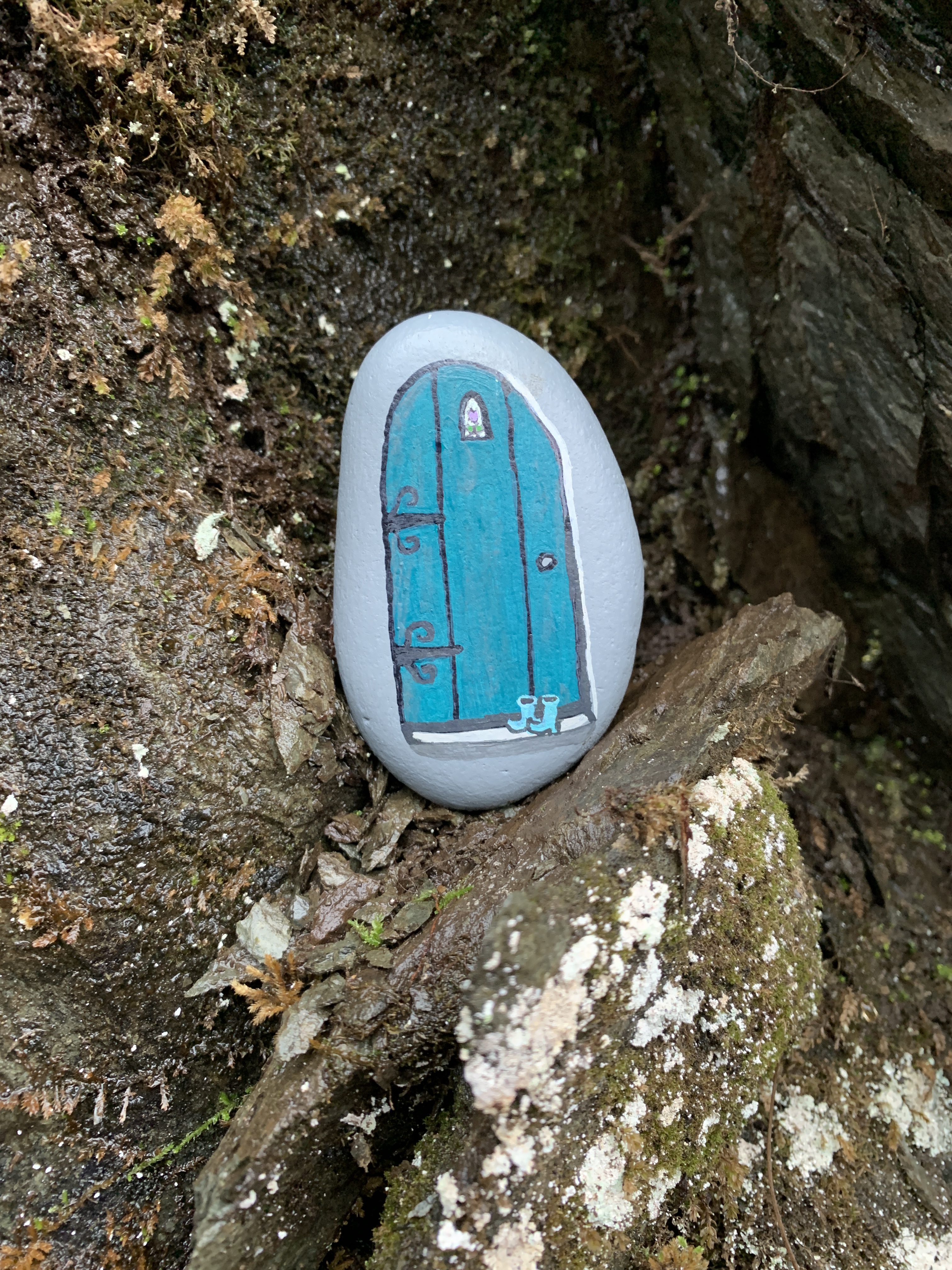renovation (n.)
c. 1400, renovacyoun, in theology, “spiritual rebirth wrought by the Holy Spirit,” also in a general sense, “rebuilding, reconstruction; a making new after decay, destruction, or impairment,” from Old French renovacion (13c.) and directly from Latin renovationem (nominative renovatio) “a renewing, renewal; a rest,” noun of action from past-participle stem of renovare “renew, restore,” from re- “again” + novare “make new,” from novus “new”
https://www.etymonline.com/word/renovation
In recent morning walks with my friend K., I’ve been insisting that I no longer believe in fate. I’ve been sharing this as a counterpoint to how I feel I made some of the earlier and most defining choices in my life. Loves chosen because I believed they were “meant to be.” Course-setting academic paths selected because of some sense that things “happen for a reason.” As a verbal processor, I think I’ve been trying on an idea in these conversations — one in which I reject the mistakes I’ve made in life that have yielded the things that feel like sorrows. Perhaps I am sounding the edges of my grief. Perhaps I’m working to explain and categorize the errors of my past, so as to inoculate myself against them for the future. Perhaps I’m struggling with my sense of the passivity with which I charted my life path, or with which I allowed it to be charted for me.
So the rejection of one way of thinking about things — the firm palm in the face of “fate” — has felt like a a bit of summoning, or spell-casting. A way to assure myself and those around me that I can be trusted with my own future. I’m no longer a fool. Henceforth I live with agency. I’ll not be tricked by palliatives like “meaning.” Fool me once, shame on you; fool me twice, shame on me.
This morning, though, I am seeing it quite differently. From my vantage point here on my tiny couch — a vantage point that includes my and A.’s new fish tank, the piano I recently purchased at Costco, my music for the Bach Cantatas I am singing with a choir this Christmas season, a mound of defrocked couch cushions whose covers are in the wash, and most importantly the collage cards that have been a method of creative outlet for a decade — I am realizing that I still firmly believe in fate. But that my belief in fate is one that stems from a sense of agency in creating it, rather than passivity in receiving it.
One of the greatest, not-so-secret joys of my last year or two has been my cheerful embrace of that time of life called “middle aged.” I am so profoundly happy to be here. I am so pleased with the insight and calm that comes with it. The sense that I can recognize the cues and the patterns, and know what to make of them. The insight that comes the familiarity of having walked a path before. For example, I know that when I open a book of music and begin to read from it, parts of my brain light on fire and summon ways of thinking and interacting with the world around me that are both fresh and ancient. I recognize that when I sit with scissor and cut and arrange and glue, I open a channel through which dormant feelings and ideas can begin to move again. I may not always make time for these things, but I know that when I do, certain things will happen as a result. I’ve seen the proof before. I’ve learned this.
One thing I have certainly learned in my life is that active space-making — imagining, describing, allowing — brings things into my life that have not previously existed but that are needed. It’s untenable to ascribe meaning to all things that happen in life. But the arrival of the pianos at Costco at the moment I had a deep need for one? The stack of free magazines at the Amazing Bookstore that were absolutely perfect for the collaging that needed doing? The landscape-brightening snowfall on the very darkest day? The king-size mattress that needed rehoming at the moment of my need? Well — these things aren’t fate. But they do feel like a caretaking from the universe at a time when care is needed. And I’ll accept them all with gratitude.
The word “renovation” is in my head as I move about my house today, like the aurora unfurling across the unfathomable night sky. I love that the Latin for it, renovationem, includes both renewal and rest. I’m in an active stage of renewal. Renewal, plus reclamation, reestablishment, reimagining, rethinking. I’m also in a realm of receiving. The things I’m receiving most in recent months are the kindness, generosity, and unflagging patience of friends (and family). I’m excavating and unearthing. I’m also creating. I’m imagining. I’m noticing. And I’m resting. And the act of resting allows the other things to come into being. I am grateful for it all. Endlessly so.
p.s. Don’t miss the performances of the Juneau Bach Society on December 2nd (8pm) and December 3rd (3pm) at K̠unéix̠ Hídi Northern Light Church!








